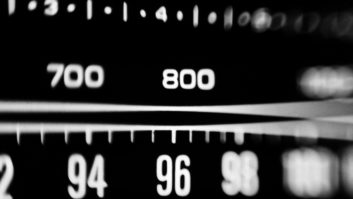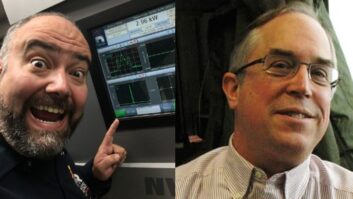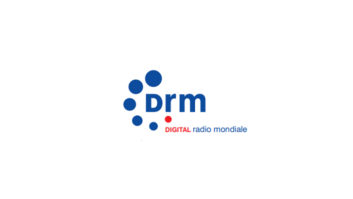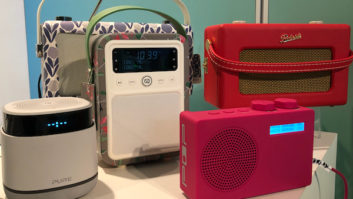Like “Web” and “streaming” were, “podcasting” is one of those geeky terms that sounds harmless but actually implies profound opportunities for those who grasp it – and, potentially, serious trouble for those who don’t.
Strictly speaking, podcasting refers to audio programming distributed via the Web, which is then downloaded onto Apple iPod MP3 players. This lets “iPodders” listen to the programs they want to hear when they want to hear them, just as easily as they now listen to songs resident on their iPod’s 20 or 40 MB hard drives.
“Each of these podcasts create an RSS 2.0 XML feed URL” – i.e. the show’s Web site location – “with an enclosed URL (directed to) to the location of the show’s MP3 file,” said Rob Greenlee, co-host of WebTalkRadio, a Web tech program that reaches a million listeners a month through 11 radio stations, streaming audio, and – to a small degree – podcasting.
“What listeners do is insert this URL into podcast-receiving software like iPodder or DopplerRadio. The iPodder or RSS FeedReader software checks this URL on a regular basis and downloads anything new in this feed.”
“Ironically, the podcasting concept isn’t new,” Greenlee said. “In fact, MP3 program downloads have been available on the Web since 2000. What makes podcasting different is the automatic delivery of content to people’s computers. This makes it easy and convenient for them to transfer these programs to their MP3 players.”
Worth noting: any MP3 player and MP3-enabled PDA such as the Pocket PC can actually play podcast programs. Like the brand-name Kleenex, the fact that the iPod has given its name to podcasting merely denotes just how popular this brand is among the teenage/young adult demographic.
What’s on
As in the early days of Internet radios, the kind of content available via podcasting is incredibly diverse. However, in order to avoid the RIAA’s wrath, “most podcasters rely on royalty-free music,” said Chris McIntyre; designer and programmer of the Podcast Alley directory to podcast programs online. By doing so, podcasters avoid the legal threats and eventual royalty payments that crippled so many small Webcasters a few years ago.
So what’s on Podcast Alley? All kinds of shows, many too raw for conventional radio, ranging from indie music and talk to religion, sports, education, business, movies: you name it.
One of the most popular podcasts is “The Dawn and Drew Show.” Produced by Dawn Miceli and Drew Domkus, the show was described by the New York Times:
“The unscripted ‘Dawn and Drew Show’ is recorded in the living room of Ms. Miceli, an artist, and Mr. Domkus, who provides technical support for an office building in nearby Milwaukee. They play off each other like Abbott and Costello, with Mr. Domkus as the straight man and Ms. Miceli as the joker, continually cracking jokes and making off-the-wall comments (and sometimes venturing into sexual subject matter).”
“We started doing the show to celebrate our 10th anniversary together,” Miceli told Radio World. “We just record ourselves talking to each other; listening to the show is just like being in our living room.”
Dawn and Drew’s unscripted approach has resulted in “about 6,000 downloads on average per show,” Domkus said. “We’re getting all kids of people listening; from kids to old guys; moms and dads.”
Such is the success of the “Dawn and Drew Show” that they’ve got their first sponsor.
“We don’t do anything special to promote them; just read a few lines about their Web site during the show,” Domkus said.
Commercial potential?
The fact that Dawn and Drew are starting to attract advertisers hasn’t escaped the podcasting community. In fact, talk about making money from the medium has become sufficiently intense that a conference on the subject has been scheduled, said Chris McIntyre.
“Most people just want to cover the cost of their bandwidth, because sending out 50,000 programs can get expensive,” he said. “However, there’s no doubt that podcasting offers some really good opportunities for niche marketing. For instance, a podcast on antique car restoration is a natural venue for companies selling reproduction parts.”
Using language eerily reminiscent of Web promoters before the dot.com bubble burst, PR consultant Steve Rubel has been “Pondering Podvertising Possibilities” in an article of the same name on www.imediaconnection.com With Seattle radio station KOMO, the BBC and Minnesota Public Radio starting to offer podcasting content online, “it’s time for forward-thinking markets to start looking at podvertising,” wrote Rubel, who is vice president of the New York PR firm CooperKatz & Co.
Besides buying on-air time or sponsoring entire podcasts, Rubel recommends that advertisers place ads in the RSS (Really Simple Syndication) text feeds that podcasters offer to their listeners, or start podcasts of their own. Whatever individual advertisers choose to do, “The key thing is to start investigating and experimenting because podcasting is here to stay,” Rubel said.
Before your sales department gets all worked up about podvertising, you should know that today’s technology only measures podcast downloads, Greenlee warned. “We can track whether the file is downloaded, but the system still does not exist that enables accurate tracking of actual playback on the portable media device.”
Implications
Dawn Miceli is leery of advertising’s impact on podcasting.
“We often reflect on the line between art and commerce,” she said. “At what price do you plug someone else’s product instead of saying what you want to say?” However, Drew Domkus admits, “I would love to parley this show into some kind of career.”
If the history of broadcasting is anything to go by, the decision to commercialize podcasting will be left up to the advertisers, not the content producers. But the fact that people are talking about adding cellphones to iPods and vice versa indicates how pervasive podcasting may become, says Greenlee.
“For broadcasters, the smart thing to do is take advantage of this new medium by getting into. Podcasting will only be a threat to those broadcasters who don’t embrace it.”












